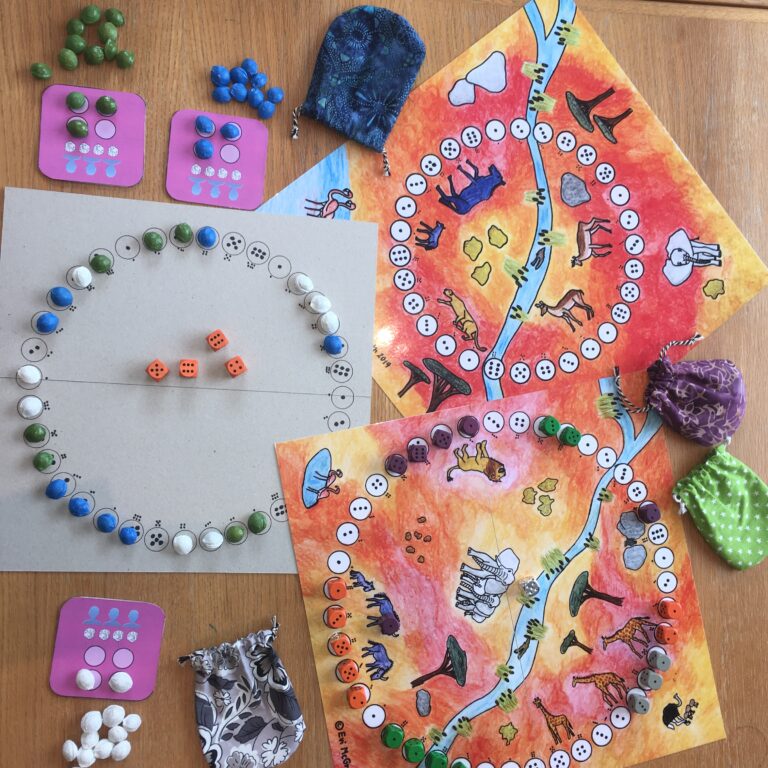
iUnga has been through countless variations during its years of play testing. Part discovery, part learning just to let go, it has been an exciting process!
There had to be a circle and some game pieces to “stand in line.” Also, there would need to be a story: something to do with moving forward, one game piece after the other – like animals, a herd! A herd of – sheep? Don’t get me wrong, I like sheep; we live in a country with lots of fluffy sheep. But a game of sheep slowly moving from field to field? That might just put me to sleep. A herd of – elephants? That was much better! How about giraffes, wildebeests, elephants and antelopes all migrating across the savannah?
For a way to introduce the “animals” randomly at the start of the game, I marked the fields with dice numbers; rolled a die; used it as an “animal” and put it on a field with the same value. A first version of iUnga was born. The first game (with its colored gameboards) was a Christmas present for my husband. He loved it!
We played iUnga with family, we played iUnga with friends. Everyone was charmed by the dice. But the game was 80 % luck and only 20 % skill; it was frustrating! Also, once everybody knew the rules, one game only took ten minutes – much too short! We tweaked the rules, tried out action cards, experimented with empty fields on the game board: nothing helped.
Then my husband suggested using game pieces instead of dice. Did I want to hear of it? NO. Did we try it? Yes – using game pieces simplified the mechanics, while at the same time, the players had more options. It all fell into place! We chucked the dice and have never looked back. The rest was fine-tuning: I regulated the length of the game by fixing the number of game pieces, introduced “holding pens” (the purple squares) as a way to structure the game, and adjusted the number of fields on the gameboard.
Where does the name “iUnga” come from? I was looking for a name that “tasted” of Africa and at the same time didn’t sound like a little kids’ game. The name found me as I was quizzing our son on Latin vocabulary, and there it was: iungere – to connect. It sounded right! I made it into “iUnga.”
